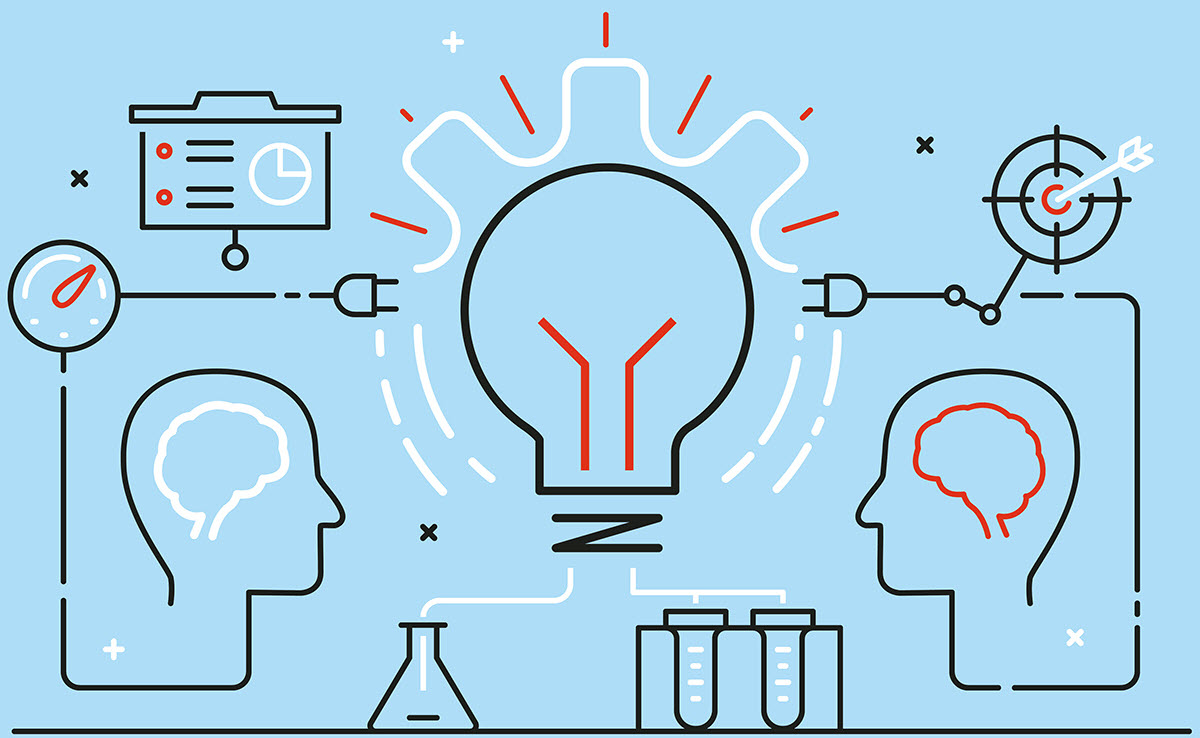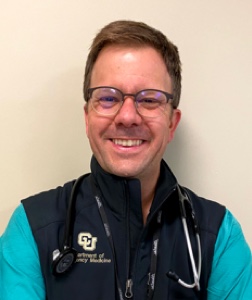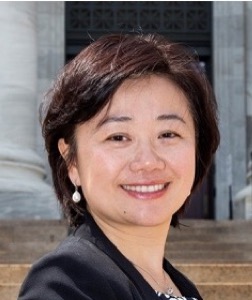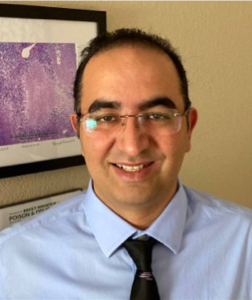
Clinical Informatics Lab
 Dr. Foster Goss, DO, MMSc, FACEP
Dr. Foster Goss, DO, MMSc, FACEP
Dr. Goss completed his residency training at Albert Einstein Medical Center and then pursued a National Library of Medicine sponsored fellowship and Masters in Medical Science in Biomedical Informatics at Harvard Medical School and Clinical Decision Making fellowship at Tufts Medical Center. His research focuses on natural language processing, decision analysis and information retrieval, as it relates to patient safety, communication and coordination of care. Dr. Goss has been involved in many of the innovation efforts at UCHealth including introduction of Clinical Pathways (AgileMD) and Real-Time Benefit/indication-based prescribing tools (SwiftRx).
He was the founder of a startup, CareLoop, a healthcare company focused on improving patient safety, communication, and accountability across transitions in care. This company was recently acquired by DispatchHealth.
His work has led to multiple publications, grants, and presentations at national conferences.
Active Projects
- Improving Allergy Documentation and Clinical Decision Support in the EHR
Developing advanced clinical decision support for improving the accuracy of allergy alerting leveraging NLP and big data. - Artificial Intelligence to interpret Electrocardiograms
Developing machine learning tools to automatically read and interpret ECGs. - Indication based prescribing to improve antibiotic stewardship for common ED infections.
Other areas of interest and applications
- Patient Safety
- Quality of Care
- Natural Language Processing
- Machine Learning
- Adverse Drug Events
- Speech Recognition
- Electronic Health Records
- Clinical Decision Support
- Clinical Decision Making/Decision Analysis
- Decision Trees/Monte Carla Simulation/Modeling
- Standard Terminologies
Collaborators
2018
AHRQ R01
Improving Allergy Documentation and Clinical Decision Support in the EHR
Developing advanced clinical decision support for improving the accuracy of allergy alerting leveraging NLP and big data.
Role: Co-I, Site PI
2016
AHRQ 1R21HS024541-01
NLP to identify and rank clinically relevant information from EHRs in the acute care setting
The goal of this project is to develop a natural language processing tool identify contextually relevant information from the EHR that is relevant to a patients presenting problem.
Role: PI
2015
NLP to improve the accuracy and quality of dictated medical documents
AHRQ/R01 – Partners Health Care, University of Colorado Hospital
Role: Co-investigator
The proposed work provides a new, systematic approach to address the consistently high number of dictation errors in medical documents, with the motivation to improve the accuracy of clinical documentation and an ultimate goal to improve the quality, safety and efficiency of care. The proposed work also reduces costs by saving physicians and transcriptionists’ time that they would have spent proofreading dictated documents.
2013
National Emergency Medicine Chief Complaint Ontology
American College of Emergency Physicians (ACEP) Section Grant – Beth Israel Deaconess Medical Center, University of Colorado Hospital, Brigham and Women’s, Summa Health System, University of Nebraska
Role: Team member
This project developed a national, standardized chief complaint ontology for the Emergency Department that can be utilized by any emergency department with an ED information system. A standardized chief complaint vocabulary will allow administrators as well as researchers to accurately and systematically represent the reason for visit in the emergency department as structured data that will facilitate comparison of patients within an institution and across institutions. A structured chief complaint can then be used to facilitate 1) Clinical Care and ED Operations 2) Quality Assurance, Improvement, and Measurement, 3) Education, 4) Surveillance, and 5) Research.
2012
Encoding and processing patient allergy information in EHRs
AHRQ/R01 - Partners Healthcare and University of Colorado Hospital
Role: Co-investigator
The major goal of this study is to build a knowledge base and NLP tool for representing allergy information such that free-text entries are automatically identified, extracted and encoded from clinical notes (ED/inpatient). This will allow important drug-allergy checking to occur and prevent adverse drug events.
AHRQ R01
Improving Allergy Documentation and Clinical Decision Support in the EHR
Developing advanced clinical decision support for improving the accuracy of allergy alerting leveraging NLP and big data.
Role: Co-I, Site PI
2016
AHRQ 1R21HS024541-01
NLP to identify and rank clinically relevant information from EHRs in the acute care setting
The goal of this project is to develop a natural language processing tool identify contextually relevant information from the EHR that is relevant to a patients presenting problem.
Role: PI
2015
NLP to improve the accuracy and quality of dictated medical documents
AHRQ/R01 – Partners Health Care, University of Colorado Hospital
Role: Co-investigator
The proposed work provides a new, systematic approach to address the consistently high number of dictation errors in medical documents, with the motivation to improve the accuracy of clinical documentation and an ultimate goal to improve the quality, safety and efficiency of care. The proposed work also reduces costs by saving physicians and transcriptionists’ time that they would have spent proofreading dictated documents.
2013
National Emergency Medicine Chief Complaint Ontology
American College of Emergency Physicians (ACEP) Section Grant – Beth Israel Deaconess Medical Center, University of Colorado Hospital, Brigham and Women’s, Summa Health System, University of Nebraska
Role: Team member
This project developed a national, standardized chief complaint ontology for the Emergency Department that can be utilized by any emergency department with an ED information system. A standardized chief complaint vocabulary will allow administrators as well as researchers to accurately and systematically represent the reason for visit in the emergency department as structured data that will facilitate comparison of patients within an institution and across institutions. A structured chief complaint can then be used to facilitate 1) Clinical Care and ED Operations 2) Quality Assurance, Improvement, and Measurement, 3) Education, 4) Surveillance, and 5) Research.
2012
Encoding and processing patient allergy information in EHRs
AHRQ/R01 - Partners Healthcare and University of Colorado Hospital
Role: Co-investigator
The major goal of this study is to build a knowledge base and NLP tool for representing allergy information such that free-text entries are automatically identified, extracted and encoded from clinical notes (ED/inpatient). This will allow important drug-allergy checking to occur and prevent adverse drug events.
Peer Reviewed
- Horng S, Goss FR, Chen RS, Nathanson LA. Prospective pilot study of a tablet computer in an Emergency Department. International journal of medical informatics. 2012;81(5):314-9. Epub 2012/01/10. doi: 10.1016/j.ijmedinf.2011.12.007. PubMed PMID: 22226927; PubMed Central PMCID: PMCPmc3320696.
- Pauker SG, Goss FR. Using models to predict the future: what to do when the data run out? Clinical pharmacology and therapeutics. 2012;91(5):769-71. Epub 2012/04/20. doi: 10.1038/clpt.2012.25. PubMed PMID: 22513311; PubMed Central PMCID: PMCPmc3711094.
- Zhou L, Mahoney LM, Shakurova A, Goss FR, Chang FY, Bates DW, et al. How many medication orders are entered through free-text in EHRs?--a study on hypoglycemic agents. AMIA Annual Symposium proceedings AMIA Symposium. 2012;2012:1079-88. Epub 2013/01/11. PubMed PMID: 23304384; PubMed Central PMCID: PMCPmc3540584.
- Goss FR, Zhou L, Plasek JM, Broverman C, Robinson G, Middleton B, et al. Evaluating standard terminologies for encoding allergy information. Journal of the American Medical Informatics Association : JAMIA. 2013;20(5):969-79. Epub 2013/02/12. doi: 10.1136/amiajnl-2012-000816. PubMed PMID: 23396542; PubMed Central PMCID: PMCPmc3756252.
- Goss FR, Plasek JM, Lau JJ, Seger DL, Chang FY, Zhou L. An evaluation of a natural language processing tool for identifying and encoding allergy information in emergency department clinical notes. AMIA Annual Symposium proceedings AMIA Symposium. 2014;2014:580-8. Epub 2014/01/01. PubMed PMID: 25954363; PubMed Central PMCID: PMCPmc4419999.
- Shu T, Liu H, Goss FR, Yang W, Zhou L, Bates DW, et al. EHR adoption across China's tertiary hospitals: a cross-sectional observational study. International journal of medical informatics. 2014;83(2):113-21. Epub 2013/11/23. doi: 10.1016/j.ijmedinf.2013.08.008. PubMed PMID: 24262068.
- Lai KH, Topaz M, Goss FR, Zhou L. Automated misspelling detection and correction in clinical free-text records. Journal of biomedical informatics. 2015;55:188-95. Epub 2015/04/29. doi: 10.1016/j.jbi.2015.04.008. PubMed PMID: 25917057.
- Normandin PA, Sullivan MM, Goss FR. A 34-year-old woman with heavy vaginal bleeding. Journal of emergency nursing: JEN : official publication of the Emergency Department Nurses Association. 2015;41(1):69-70. Epub 2014/12/03. doi: 10.1016/j.jen.2014.10.003. PubMed PMID: 25459338.
- Topaz M, Seger DL, Lai K, Wickner PG, Goss FR, Dhopeshwarkar N, et al. High Override Rate for Opioid Drug-allergy Interaction Alerts: Current Trends and Recommendations for Future. Studies in health technology and informatics. 2015;216:242-6. Epub 2015/08/12. PubMed PMID: 26262047.
- Genco EK, Forster JE, Flaten H, Goss FR, Heard KJ, Hoppe J, et al. Clinically Inconsequential Alerts: The Characteristics of Opioid Drug Alerts and Their Utility in Preventing Adverse Drug Events in the Emergency Department. Annals of emergency medicine. 2016;67(2):240-8.e3. Epub 2015/11/11. doi: 10.1016/j.annemergmed.2015.09.020. PubMed PMID: 26553282; PubMed Central PMCID: PMCPmc4955849.
- Goss FR, Zhou L, Weiner SG. Incidence of speech recognition errors in the emergency department. International journal of medical informatics. 2016;93:70-3. Epub 2016/07/21. doi: 10.1016/j.ijmedinf.2016.05.005. PubMed PMID: 27435949.
- Plasek JM, Goss FR, Lai KH, Lau JJ, Seger DL, Blumenthal KG, et al. Food entries in a large allergy data repository. Journal of the American Medical Informatics Association : JAMIA. 2016;23(e1):e79-87. Epub 2015/09/19. doi: 10.1093/jamia/ocv128. PubMed PMID: 26384406; PubMed Central PMCID: 4954633.
- Topaz M, Lai K, Dhopeshwarkar N, Seger DL, Sa'adon R, Goss FR, et al. Clinicians' Reports in Electronic Health Records Versus Patients' Concerns in Social Media: A Pilot Study of Adverse Drug Reactions of Aspirin and Atorvastatin. Drug safety. 2016;39(3):241-50. Epub 2015/12/31. doi: 10.1007/s40264-015-0381-x. PubMed PMID: 26715498.
- Topaz M, Seger DL, Goss FR, Lai K, Slight SP, Lau JJ, et al. Standard Information Models for Representing Adverse Sensitivity Information in Clinical Documents. Methods of information in medicine. 2016;55(2):151-7. Epub 2016/02/26. doi: 10.3414/me15-01-0081. PubMed PMID: 26905461.
- Topaz M, Seger DL, Slight SP, Goss FR, Lai K, Wickner PG, et al. Rising drug allergy alert overrides in electronic health records: an observational retrospective study of a decade of experience. Journal of the American Medical Informatics Association : JAMIA. 2016;23(3):601-8. Epub 2015/11/19. doi: 10.1093/jamia/ocv143. PubMed PMID: 26578227.
- Zhou L, Dhopeshwarkar N, Blumenthal KG, Goss FR, Topaz M, Slight SP, et al. Drug allergies documented in electronic health records of a large healthcare system. Allergy. 2016;71(9):1305-13. Epub 2016/03/13. doi: 10.1111/all.12881. PubMed PMID: 26970431.
- Acker WW, Plasek JM, Blumenthal KG, Lai KH, Topaz M, Seger DL, Goss, FR, et al. Prevalence of food allergies and intolerances documented in electronic health records. The Journal of allergy and clinical immunology. 2017. Epub 2017/06/05. doi: 10.1016/j.jaci.2017.04.006. PubMed PMID: 28577971.
- Cohen KB, Goss FR, Zweigenbaum P, Hunter LE. Translational Morphosyntax: Distribution of Negation in Clinical Records and Biomedical Journal Articles. Studies in health technology and informatics. 2017;245:346-50. Epub 2018/01/04. PubMed PMID: 29295113.
- Goss FR, Lai KH, Topaz M, Acker WW, Kowalski L, Plasek JM, et al. A value set for documenting adverse reactions in electronic health records. Journal of the American Medical Informatics Association : JAMIA. 2017. Epub 2017/12/19. doi: 10.1093/jamia/ocx139. PubMed PMID: 29253169.
- Horng S, Greenbaum N, Nathanson LA, McClay J, Goss FR, Nielson JA. Consensus Development Of A Modern Ontology Of Emergency Department Presenting Problems: The HierArchical Presenting Problem OntologY (HaPPy). bioRxiv. 2017. doi: 10.1101/126870.
- Topaz M, Goss FR, Blumenthal K, Lai K, Seger DL, Slight SP, et al. Towards improved drug allergy alerts: Multidisciplinary expert recommendations. International journal of medical informatics. 2017;97:353-5. Epub 2016/10/13. doi: 10.1016/j.ijmedinf.2016.10.006. PubMed PMID: 27729200.
- Cohen KB, Xia J, Zweigenbaum P, Callahan TJ, Hargraves O, Goss FR, et al. Three Dimensions of Reproducibility in Natural Language Processing. LREC International Conference on Language Resources & Evaluation : [proceedings] International Conference on Language Resources and Evaluation. 2018;2018:156-65. Epub 2018/06/19. PubMed PMID: 29911205; PubMed Central PMCID: PMCPmc5998676.
- Zhou L, Blackley SV, Kowalski L, Doan R, Acker WW, Landman AB, Kontrient E, Mack D, Meteer M, Bates DW, Goss FR. Analysis of errors in dictated clinical documents assisted by speech recognition software and professional transcriptionists. JAMA Network Open. 2018 Jul 6;1(3):e180530.
- Reno E, Goss FR, Franco-Paredes C, Henao-Martínez AF. Fatal fulminant hepatitis A in a US traveler returning from Peru. Journal of travel medicine. 2019 Mar 7.
- Horng S, Greenbaum NR, Nathanson LA, McClay JC, Goss FR, Nielson JA. Consensus Development of a Modern Ontology of Emergency Department Presenting Problems—The Hierarchical Presenting Problem Ontology (HaPPy). Applied clinical informatics. 2019 May;10(03):409-20.
- Goss FR, Blackley SV, Ortega CA, Kowalski LT, Landman AB, Lin CT, Meteer M, Bakes S, Gradwohl SC, Bates DW, Zhou L. A clinician survey of using speech recognition for clinical documentation in the electronic health record. Int J Med Inform. 2019 Oct;130:103938. PubMed PMID: 31442847
- Wong A, Seger DL, Lai KH, Goss FR, Blumenthal KG, Zhou L. Drug Hypersensitivity Reactions Documented in Electronic Health Records within a Large Health System. J Allergy Clin Immunol Pract. 2019 Apr;7(4):1253-1260.e3. PubMed PMID: 30513361
- Goss FR, Bookman K, Barron M, Bickley D, Landgren B, Kroehl M, Williamson K, Zane R, Wiler J. Improved Antibiotic Prescribing using Indication-based Clinical Decision Support in the Emergency Department. J American Coll of Emerg Phys. 2020.
Abstracts, Poster Presentations and Exhibits Presented at Professional Meetings
- Goss FR, Villarin L. Evaluating ED overcrowding using infra-red tracking technology. Poster presentation at the American College of Emergency Physicians Scientific Assembly Research Forum. Chicago, IL 2008. Ann of Emerg Med. 2008; 52(4 suppl):S56.
- Goss FR, Villarin L. Emergency Severity Index as a Predictor of Emergency Department Efficiency Rates in a Level 1 Trauma Center Employing Infra-red Automatic Tracking Technology. Poster presentation at the American College of Emergency Physicians Scientific Assembly Research Forum. Chicago, IL 2008. Ann of Emerg Med. 2008; 52(4 suppl):S56
- Goss FR, Villarin L. Incidence of MRSA in an urban emergency using a rapid screening surveillance technology/Oral Plenary Presentation of abstract. Society for Academic Emergency Medicine Regional Conference, Delaware.
- Goss FR, Villarin L. Impact of observation status on ED boarding. Oral presentation of abstract. Society for Academic Emergency Medicine Regional Conference, Delaware.
- Horng S, Goss FR, Nathanson LA. Prospective Pilot Study of an iPad Tablet Computer in an Emergency Department. SAEM Abstracts. Academic Emergency Medicine. 2011; 18: S103.
- Goss FR, Wong JB..Lumbar Puncture or CT Angiography following a negative CT scan for suspected SAH: a decision analysis. Poster Presentation at Society for Academic Emergency Medicine Annual Conference. Chicago, IL, 2012.
- Goss FR. An NLP-based approach to detecting free-text allergies. Presentation at National Library of Medicine Training Conference. Madison, WI, 2012.
- Goss FR, Weiner S. Incidence of Speech Recognition Errors in the Emergency Department. Poster presentation at the American College of Emergency Physicians Scientific Assembly Research Forum. Seattle, WA, 2013.
- Plasek, Joseph, Goss FR. Automated Encoding of Allergy Information in the Electronic Medical Record - An Application of the Medical Text Extraction, Reasoning, and Mapping System (MTERMS). Brigham and Women’s DGIM Research Day. Boston, MA, 2014
- Goss FR, Zhou L. An Evaluation of a Natural Language Processing Tool for Identifying and Encoding Allergy Information in Emergency Department Clinical Notes, Podium Presentation, AMIA Annual Symp Proc 2014.
- Topaz M, Lai K, Dhopeshwarkar N, Seger D, Sa'adon R, Goss F, Rozenblum R, Zhou L. Comparing medication side effects in clinical data and social media: Aspirin and Lipitor pilot study. Podium presentation, Healthcare Informatics Summit 2015, Istanbul, Turkey, 2015.
- Kimberly G. Blumenthal, MD,1 Kenneth H. Lai, MA,2 Maxim Topaz, RN, PhD,2 Paige G. Wickner, MD, MPH,3Diane L. Seger, RPh,2Foster R. Goss, DO,4 Sarah P. Slight, MPharm, PhD, PgDip,5 Frank Y. Chang, MSE,2 Li Zhou, MD, PhD2,3 Reported Incidence of Hypersensitivity Reactions to Non-Steroidal Anti-Inflammatory Drugs in the Electronic Health Record, AAAI.
- Chua-Tuan JL, Bookman K, Capp R, Goss FR, et al. Implementation of Clinical Pathways Impact on Emergency Provider Practice and Opportunities. Society for Academic Emergency Medicine. 2015.
- Clinical Pathways: A Novel Approach to Enhancing Quality and Efficiency in the Emergency Department - Society for Academic Emergency Medicine annual meeting, May 18th, 2017.
- Leigh T. Kowalski1, Foster R. Goss DO, MMSc5, Adam B. Landman, MD1,2,3, Shiri Hassid, PhD1,2,3, Marie Meteer, PhD6, Suzanne V. Blackley1, David W. Bates, MD, MSc1,2,3, Li Zhou, MD, PhD1,2,3 Front-End vs. Back-End Clinical Document Dictation Preferences among Physicians at a Large, Integrated HealthCare System. Society for General Internal Medicine Conference, April 19-22, 2017 (abstract and poster presentation).
- Goss F. Beyond the patient portal – podium presentation, Connected Health Conference, Boston, MA Oct 27th, 2017.
- KB Cohen, JB Xia, P Zweigenbaum, T Callahan, Goss FR, N Ide, A Ne ́ve ́ol, C Grouin, and LE Hunter. Three Dimensions of Reproducibility in Natural Language Processing. (Accepted LREC 2018).
- Dhaliwal J, Bookman K, Whittintton M, Goss FR, Marzec L, Wiler J. The Impact of a Computerized Clinical Decision Support System on Care Delivery for Patients Presenting to the Emergency Department with Chest Pain (submitted SAEM).
- Goss F. (Keynote speech) NLP to Improve Accuracy and Quality of Dictated Medical Documents. AHDI’s Healthcare Documentation Integrity Conference, Orlando, FL. August, 2018.
- Zhou, Blackley SK, Goss FR. Improving Health IT Through Use of NLP/AI in Documentation. (presented at the 2018 HIMSS Conference and Exhibition, Las Vegas)
- Shah S, Ortego C, Blackley S, Blumenthal K, Goss FR, Wicker P, Seger D, Bates D, Zhou L. Improving Allergy Documentation in a commercial EHR system. (abstract and poster presentation). AMIA Annual Symp Proc 2019.
- Digital Health Partnerships for Innovation in Emergency Medicine - Foster R. Goss, DO, MMSc, Kelly J. Bookman MD, Richard Zane MD, Jennifer L. Wiler MD, MBA, ACEP 2019 Newsletter.
In the News
Loading items....

